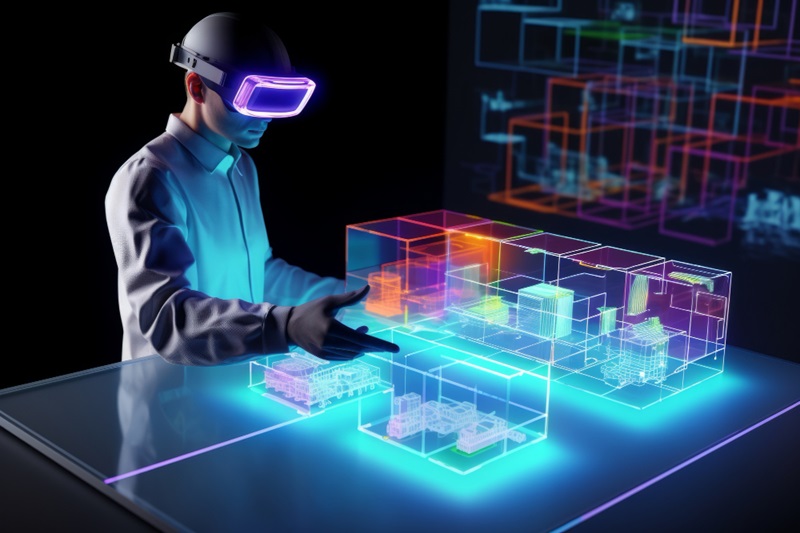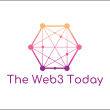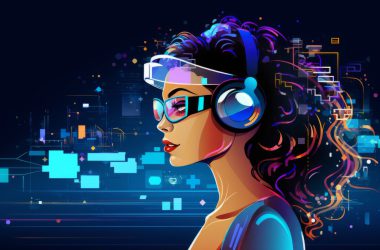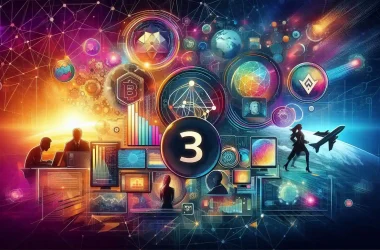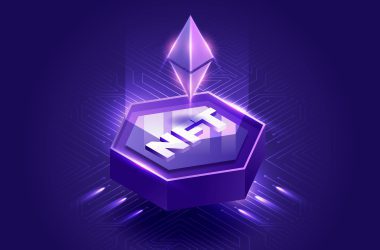Web3 & AI merging to create “decentralized AI”! This could mean more control over your data & shake up industries. Buckle up for the future! #Web3 #AI #Tech
The digital landscape is on the cusp of a transformative era. Web3, characterized by decentralization, user ownership, and transparency, is poised to converge with the ever-evolving realm of Artificial Intelligence (AI). This powerful union has the potential to usher in a new paradigm: decentralized AI.
This article delves into the exciting possibilities that lie at the intersection of Web3 and AI, exploring how this convergence could fundamentally reshape the way we interact with data, AI-powered applications, and various industries.
Web3: A Foundation for Decentralized Power
Web3 represents a significant shift from the current iteration of the internet, often referred to as Web 2.0. Web 2.0 is dominated by centralized platforms that control user data and dictate the terms of engagement. In contrast, Web3 leverages blockchain technology, a decentralized and transparent ledger system, to empower users.
Here’s how Web3 principles pave the way for decentralized AI:
- Decentralized Data Storage: Blockchain technology enables secure and transparent storage of data, potentially removing control from centralized entities and placing it in the hands of users. This fosters data ownership, allowing users to decide how and with whom their data is shared.
- Smart Contracts: Self-executing contracts on the blockchain can govern the interaction between AI models and users. These contracts could define the parameters for data usage, ensuring transparency and user control.
- Decentralized Applications (dApps): Web3 applications, or dApps, built on blockchains can leverage AI for functionalities without relying on centralized servers. This opens doors for user-controlled AI tools and services.
AI: The Powerhouse of Intelligent Automation
Artificial Intelligence encompasses a vast array of sophisticated algorithms and machine learning models capable of performing tasks traditionally requiring human intelligence. AI finds applications in various sectors, from healthcare and finance to customer service and content creation.
However, current AI development raises concerns about data privacy and control. Often, large corporations hold vast amounts of user data that fuel AI models, raising questions about ownership and potential biases.
The Convergence: A Symbiotic Relationship
Web3’s decentralized nature offers a compelling solution to these AI-related concerns. By leveraging Web3 principles, AI development and deployment could become:
- More User-Centric: Users could have greater control over the data used to train AI models. This could be achieved through tokenized data ownership models, where users are compensated for contributing their data.
- Transparent and Trustworthy: Blockchain technology allows for the creation of auditable AI models. The data used, training processes and decision-making logic could be transparently tracked, fostering trust in AI systems.
- Democratized AI Development: Web3 opens doors for collaborative AI development through Decentralized Autonomous Organizations (DAOs). These community-driven entities could pool resources and expertise to create and maintain AI models for various purposes.
Revolutionizing Industries with Decentralized AI
The potential applications of decentralized AI are vast and transformative. Here are some potential areas of disruption:
- Financial Services: Decentralized AI could power secure and transparent financial transactions, facilitate personalized financial advice, and even automate investment decisions based on user-defined parameters.
- Healthcare: AI-powered medical diagnosis and treatment plans could be combined with secure, user-owned health data on the blockchain, leading to more personalized and data-driven healthcare.
- Content Creation: Decentralized AI could be used to personalize content experiences, create interactive and adaptive learning materials, or even generate artistic content based on user preferences.
Challenges and Considerations
While the potential benefits of decentralized AI are significant, there are challenges to overcome:
- Scalability: Blockchain technology currently faces scalability limitations. Decentralized AI applications need robust infrastructure to handle large amounts of data and complex AI models.
- Regulation: The nascent field of Web3 and its interaction with AI require clear regulatory frameworks to ensure the responsible development and deployment of decentralized AI systems.
- Technical Expertise: Building and managing decentralized AI applications requires specialized technical expertise. Addressing this skill gap is crucial for widespread adoption.
Conclusion: A Future of Decentralized Intelligence
The convergence of Web3 and AI presents a unique opportunity to reshape the digital landscape. By leveraging the power of decentralization, we can build a future where AI serves humanity, empowering users with control over their data and fostering trust in intelligent systems. While challenges remain, ongoing research and development efforts hold immense promise. As with any groundbreaking innovation, responsible development and ethical considerations are paramount. By fostering open collaboration and prioritizing human well-being, we can harness the power of decentralized AI to create a brighter digital future for all.
Call to Action:
This transformative journey requires active participation. Stay informed about Web3 and AI advancements, explore decentralized applications, and engage in discussions about the responsible development of these technologies. Let’s work together to shape a future where AI empowers us, not the other way around.










